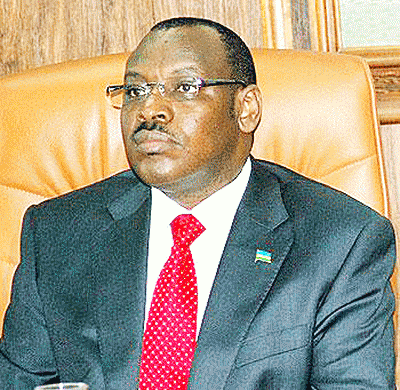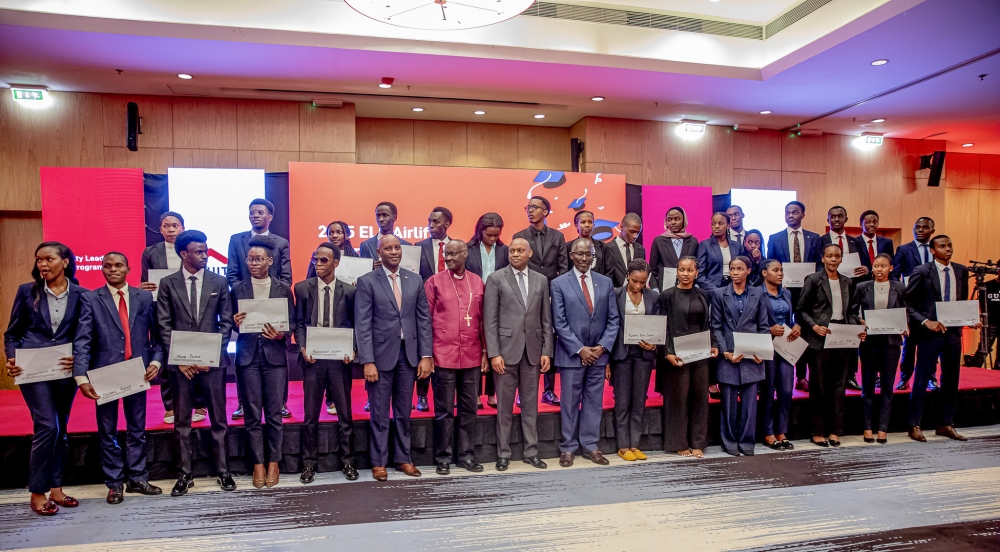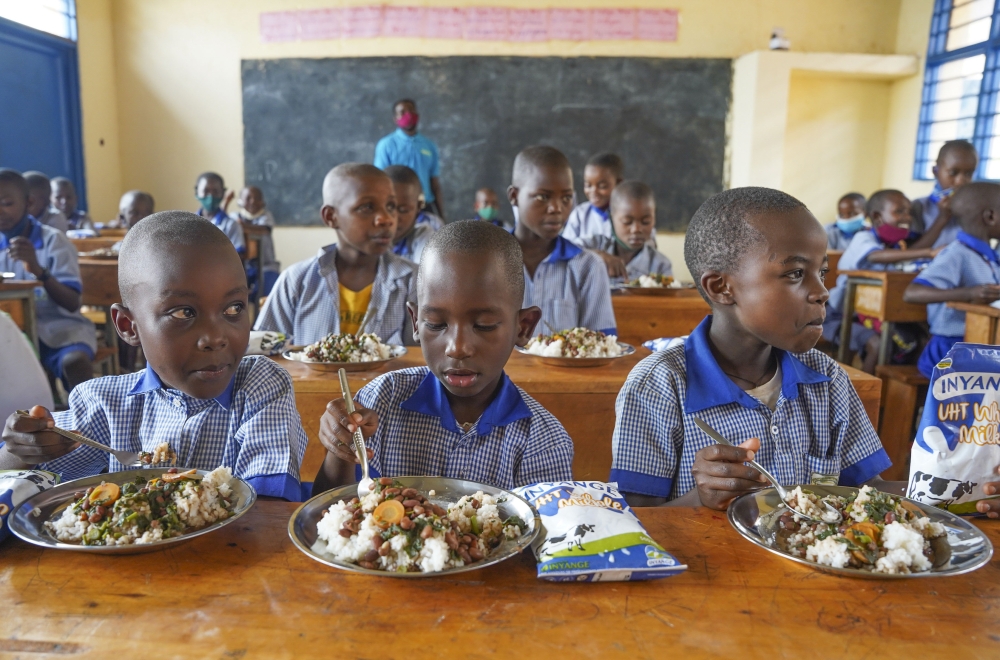The country’s economy has continued to witness strong resilience with a real Growth Domestic Product Growth of 7.3 per cent in the third quarter of the year, despite global shocks that have persisted throughout the year.


The country’s economy has continued to witness strong resilience with a real Growth Domestic Product Growth of 7.3 per cent in the third quarter of the year, despite global shocks that have persisted throughout the year.In a news briefing last Friday, Central Bank Governor, Claver Gatete, said that despite the persistent global economic crisis that has pushed import receipts higher thus increasing the country’s deficit, the country’s economy has continued to perform well. "We have seen significant improvements in cross-border trade and exports. Services have also significantly contributed to the GDP growth from 8.9 percent in quarter three of 2011 to 12.0 percent in the same quarter of this year,” he said. Accordingly, real GDP growth was 7.5per cent, 9.9 per cent and 7.3 per cent respectively in Quarter 1, Quarter 2 and Quarter 3 in 2012. This was attributed to good economic performance and effective monetary and exchange rate policy.Gatete noted that that there was a drop in the contribution to the Real GDP growth of the agricultural sector by 1.3 per cent citing poor climatic conditions during the year. The services sector contributed a bigger percentage to the GDP; an outlook that gives the country hopes of attaining middle status by 2020.But the Rwanda Franc depreciated by 4.5 per cent against the US Dollar between December 2011 and mid- December 2012. The central bank maintained that the depreciation remains moderate with limited impact on inflation."This is due to the high increase in forex demand to finance imports associated with dynamism in economic activities,” he said.Nevertheless, inflation rate has been declining from 8.3 per cent in December 2011 to 4.6 percent in November 2012 as Central Bank kept the exchange rate fundamentally market driven while continuing to intervene on the volatility of the domestic foreign exchange rate. Experts say that the recent decision by some banks like the Development Bank of Rwanda (BRD) to lend to coffee farmers in US dollars and was be as a result of the anticipated volatility, a move that would lead to a deficiency of foreign currency reserves in the country.But Gatete explained, "We are not saying that we cannot approve such loans. BRD has to bring such loans to us to asses for us to be sure that the borrower will be able to pay back,” Gatete said.He added that the central bank would only approve loans that would require only credible farmers to import coffee processing equipment. He said anything else would be procured using the using the local currency.The Governor noted that the central bank had decided to keep its key repo rate at 7.5 per cent to maintain the current monetary policy stance. He said that the money market interest rates reflected increasing competition within the banking system as lending rates had been relatively stable fluctuating around17.0 percent while deposit rates increased from 8.0 percent in December 2011 to 9.3 percent in October 2012.






